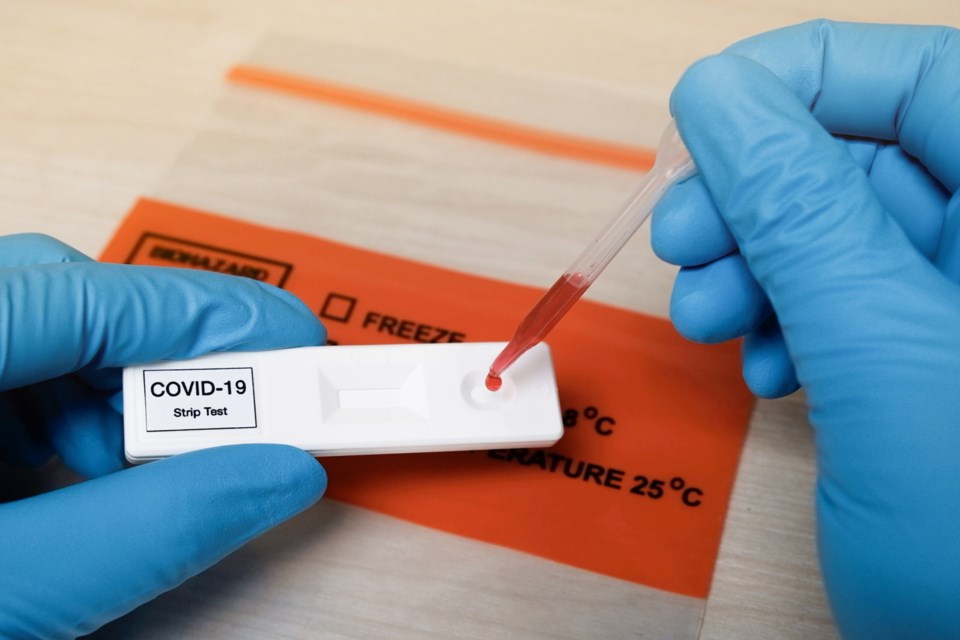OTTAWA -- After consulting with the Chief Medical Officer of Health, the Ontario government announced on Dec. 14 implementing temporary measures to further protect the health and safety of residents, staff and caregivers in long-term care and retirement homes from COVID-19 and the Omicron variant.
It is hoped that these measures will help reduce the risk of transmission during the winter months and also protect the progress the province has made in stopping the spread of the virus and its variant.
Rod Phillips, Minister of Long-Term Care expresses his concerns stating his priority is to continue protecting seniors from COVID-19. “Faced with rising rates of community infection and the emerging threat of the Omicron variant we are immediately implementing further measures to protect our most vulnerable based on the best available scientific and medical advice. These measures will build on the ones already taken, including mandatory vaccinations, priority of third doses and randomized testing-and will provide the best level of protection possible.”
Effective immediately, all general visitors to a long-term care home must be fully vaccinated and all long-term care homes are directed to increase infection prevention and control (IPAC) audits.
As of Friday, Dec. 17, 2021:
- All staff, students, volunteers, and caregivers, regardless of vaccination status must be tested at least twice a week prior to entry in to the home, as part of enhanced active screening practices
- Requiring a negative test upon entry to a long-term care home for all visitors and support workers who provide essential services to a resident or to the facility, unless they had a negative test the day before
- Requiring caregivers to be fully vaccinated, unless they have a valid medical exemption or are attending to a resident in a palliative end-of-life situation. Caregivers will be required to have a first dose by December 20, 2021 and all required doses to be considered fully vaccinated by February 21, 2022. In the interim, designated caregivers who are not fully vaccinated would need to restrict their visit to the resident’s room.
- Limiting indoor visits to a maximum of two people per resident at a time and outdoor visits, where feasible, to a maximum total of four people per resident at a time
- Cohorting of residents for higher-risk activities, such as singing and dancing, and discouraging large social activities. This is in addition to the cohorting of residents during meal times, which is currently occurring
- Limiting social day trips to only residents who are fully vaccinated and requiring those residents who leave the home for social reasons to be actively screened upon their return to the home and if they had a known exposure to a case, isolated and tested reasons, such using a PCR test. All residents, regardless of vaccination status, can continue to leave the home for essential as medical appointments
- Suspending overnight absences for social purposes regardless of residents’ vaccination status. Residents who wish to leave the home overnight for social purposes or due to COVID-19 may be temporarily discharged and need to follow the re-admission protocol to return at a later date
Effective Dec. 22, 2021 further requirements include:
- Requiring rapid antigen testing for staff, volunteers, contractors and essential caregivers, regardless of vaccination status, two times per week prior to entry into the home as part of enhanced active screening practices.
- Strongly encouraging retirement homes to restrict general visitors to only those who are fully vaccinated and implementing additional requirements for essential visitors and general visitors who are not fully vaccinated when entering a retirement home.
- Limiting the number of visitors and group sizes for social activities and events.
- Implementing additional testing and isolation requirements for residents when they return from an overnight absence.
- Instructing retirement homes to increase IPAC audits.
The goal of these enhanced measures is to continue to protect the residents and staff of Long-term Care homes in Ontario.
Raymond Cho, Minister of Minister of Seniors and Accessibility stated that “We’re working with the Office of the Chief Medical Officer of Health and the Retirement Homes Regulatory Authority to ensure retirement homes are implementing enhanced testing and infection prevention and control measures to keep residents and staff safe and limit the spread of the virus.”
